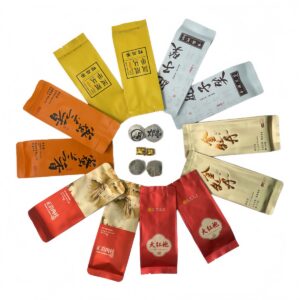White tea for diabetes management has emerged as a soothing, science-backed ritual that not only calms your spirit but also supports steady blood sugar levels. Imagine starting each day with a pale-golden infusion whose delicate floral aroma enfolds your senses—while inside, its potent compounds work in harmony to nurture your metabolic health.
In this comprehensive guide, we’ll explore how white tea can be your ally against blood sugar spikes, and how its secondary gifts—like white tea and cholesterol balance, white tea and blood pressure support, and white tea detox benefits—contribute to an overall sense of vitality.
What Is White Tea?
White tea originates from the pristine highlands of Fujian Province in China, where young buds and the smallest leaves are harvested before full oxidation. Unlike green or black tea, white tea undergoes only withering and gentle drying, preserving its subtle sweetness, silky mouthfeel, and a bouquet of light, floral notes. This minimal processing ensures a high concentration of delicate bioactive compounds—like catechins, polyphenols, and amino acids—that form the basis of its remarkable health properties.

Diabetes and Metabolic Health
Type 2 diabetes arises when cells become less responsive to insulin, causing blood glucose to linger in the bloodstream. Over time, these elevated sugar levels can damage blood vessels, nerves, and vital organs. Managing blood sugar isn’t just about preventing complications—it’s about reclaiming energy, clarity, and a zest for life. By integrating white tea for diabetes management into your daily routine, you tap into nature’s gentle power to help keep sugar surges in check and foster steady metabolic function.
Mechanisms of Diabetes Management
1. EGCG Enhances Insulin Sensitivity
The star compound in white tea, epigallocatechin-3-gallate (EGCG), has been shown to improve the way your cells respond to insulin. EGCG aids glucose uptake by muscle cells, reducing the load on your pancreas and helping maintain healthy blood sugar curves throughout the day.
2. Inhibition of Carbohydrate-Digesting Enzymes
White tea contains natural inhibitors of α-glucosidase and α-amylase—key enzymes that break down starches into glucose. Slowing this digestive process softens the post-meal blood sugar rise, offering a smoother, more controlled metabolic response after every bite.
3. Antioxidant & Anti-Inflammatory Action
Chronic inflammation and oxidative stress are silent drivers of insulin resistance. White tea’s rich palette of polyphenols combats inflammation at the cellular level, shielding your tissues from damage and fostering a balanced internal environment conducive to optimal glucose regulation.

Secondary Benefits
1. White Tea and Cholesterol
As cholesterol imbalances can accompany metabolic disorders, it’s a blessing that white tea for diabetes management also extends support to healthy lipid profiles. Studies suggest that white tea can modestly reduce LDL (“bad”) cholesterol and elevate HDL (“good”) cholesterol, contributing to cardiovascular resilience.
2. White Tea and Blood Pressure
Stable blood pressure is crucial for individuals with diabetes. The gentle vasodilatory properties of white tea’s bioactive compounds promote healthy circulation, helping to maintain a calm, steady pressure that safeguards your heart and vessels.
3. White Tea Detox Benefits
Beyond glucose control, white tea offers white tea detox benefits—a subtle flushing of toxins and metabolic byproducts. Its diuretic effect encourages gentle cleansing, while antioxidants support liver health, the body’s central detox hub.
Optimal Brewing & Dosage
- Water Temperature: Heat water to 75–85 °C (167–185 °F). Boiling water can degrade fragile catechins and introduce bitterness.
- Steeping Time: Allow the leaves to steep for 3–5 minutes, stirring gently once to coax out the full spectrum of aroma and nutrients.
- Daily Serving: Aim for 2–4 cups per day. Spread them across morning, midday, and afternoon to sustain a steady infusion of metabolic support.

🔗 To learn more about how to make tea, check out Tanbiwencha’s YouTube video explaining how to make tea.
Integrating White Tea into Your Routine
- Morning Ritual: Begin your day with a warm cup of white tea. Inhale its gentle floral perfume as you set intentions for balanced energy.
- Post-Meal Support: Replace one post-lunch coffee with white tea to ease carbohydrate digestion and minimize the mid-afternoon slump.
- Pre-Workout Boost: Sip a cup 30 minutes before exercise. The mild caffeine and EGCG synergy can enhance fat oxidation and insulin sensitivity during physical activity.
- Complement with Whole Foods: Pair your white tea with fiber-rich breakfasts—like oatmeal with berries or chia pudding—to further soften glucose absorption.
- Supplemental Extracts: If you travel or need convenience, choose high-quality white tea extracts standardized for EGCG content. Always verify purity and absence of unwanted fillers.
Safety & Precautions
- Caffeine Sensitivity: White tea contains moderate caffeine. If you’re sensitive, limit consumption after mid-afternoon to avoid sleep disruptions.
- Medication Interactions: Some diabetes medications may interact with high catechin intake. Consult your healthcare provider before significantly increasing white tea consumption.
- Pregnancy & Nursing: Minimal data exist on high-dose white tea in pregnancy. Enjoy moderate amounts or seek medical advice.
Frequently Asked Questions
Q: Can I use white tea instead of prescribed medication?
A: White tea for diabetes management is a complementary strategy, not a replacement for medical treatment. Always follow your doctor’s guidance.
Q: How soon will I notice benefits?
Individual responses vary. Some people observe steadier post-meal glucose within weeks; others enjoy gradual improvements over months. Consistency is key.
Q: Is white tea safe for children with type 1 diabetes?
Due to caffeine and limited research on pediatric use, white tea isn’t generally recommended for children. Seek tailored advice from a pediatric endocrinologist.
Conclusion
Embracing white tea for diabetes management weaves a serene, sensory-rich practice into your daily life—one that extends beyond blood sugar control to uplift heart health, support healthy cholesterol and blood pressure, and offer gentle detox benefits. Let each pale-golden cup remind you of your commitment to balance, vitality, and the quiet power of nature’s purest tea.



